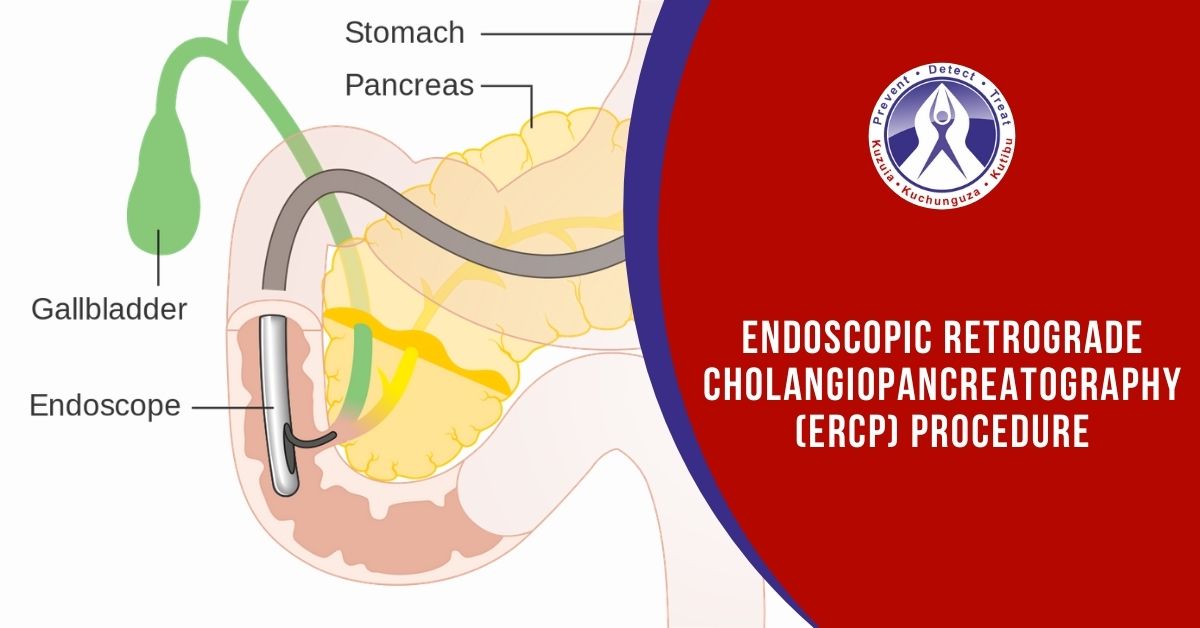Endoscopic Retrograde CholangioPancreatography (ERCP) procedure
1,059 viewsThe ERCP test, also known as Endoscopic Retrograde Cholangiopancreatography, might sound complicated, but is a fairly common procedure. The ERCP procedure, helps diagnose and treat disorders associated with the digestive system. This procedure is a great tool to determine, or even treat issues pertaining to the liver, gallbladder, pancreas and the bile duct.
This raises the question, what exactly comprises of an ERCP test?
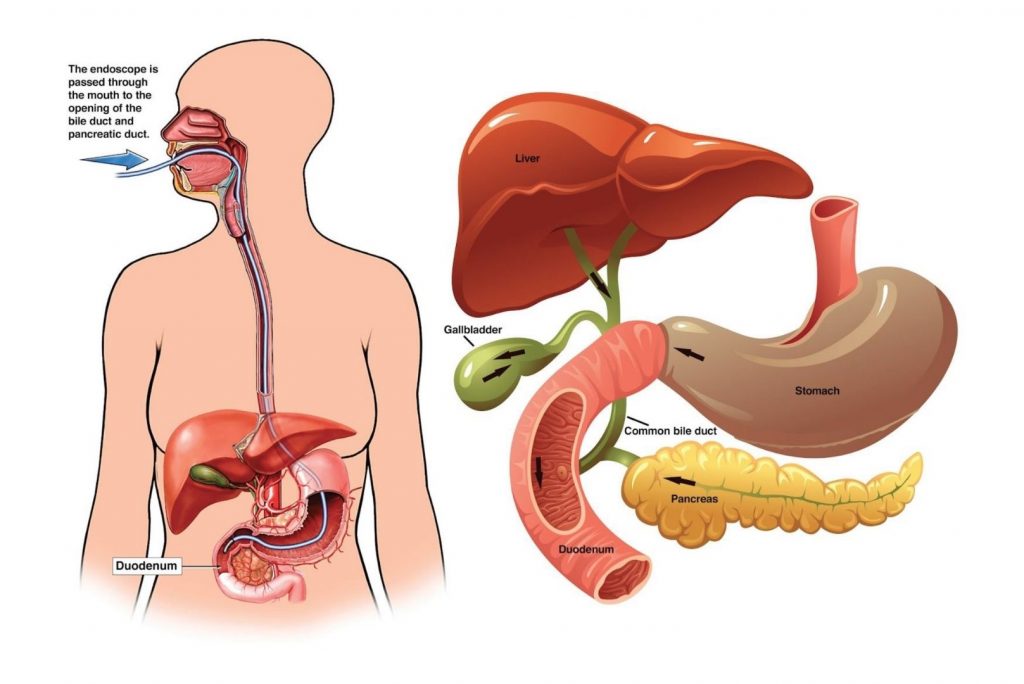
The ERCP procedure entails your gastroenterologist to use an endoscope to examine the digestive system inside the body. On identifying the bile duct entrance, the endoscope push out a contrast ink that helps the doctors see organs and the ailment clearly.
This process needs the combination of an X-ray along with an endoscope. The doctors then prescribe a course of treatment once the ailment has been identified. Over and above its diagnostic purposes, ERCP treatment is also used for therapeutic purposes as well.
This procedure is essential in helping diagnose and provide therapeutic solutions for problems of the bile duct, for example cancer, stones or strictures. It is also used to determine issues of the gallbladder like cholecystitis and gallstones. This procedure also helps determine inflammation of the pancreas, pancreatic cancer, or cysts and pseudo-cysts.
Why Would You Need ERCP?
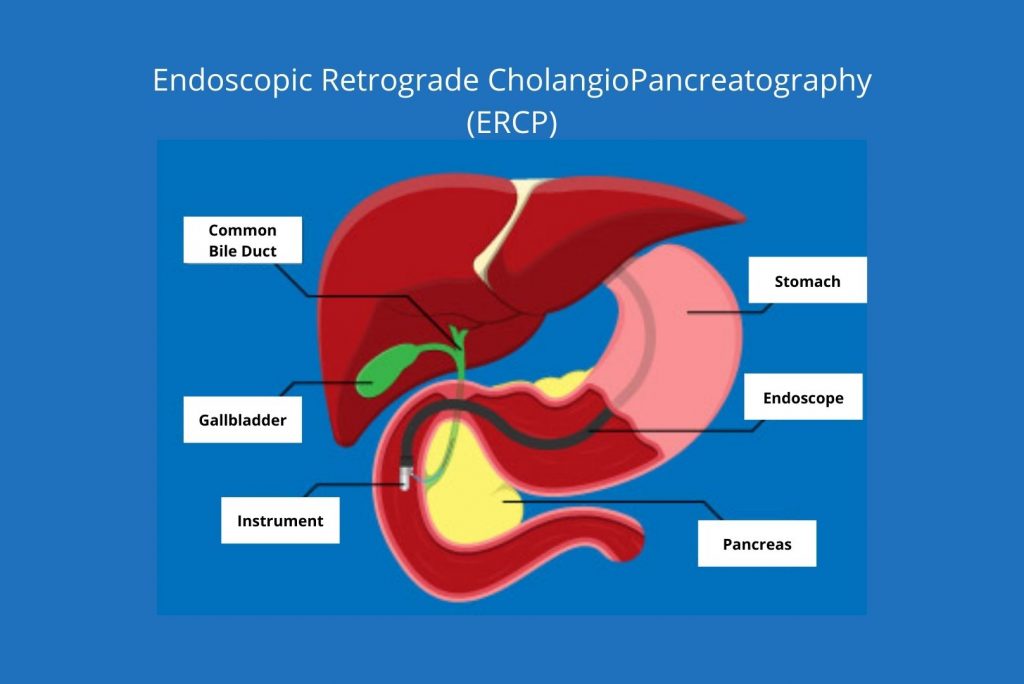
This is a procedure generally advised to individuals suffering from stomach pain, or jaundiced or yellowed, skin and eyes. The ERCP test is also used an exploratory tool for patients suspected to be suffering from cancer of the pancreas, bile duct or liver.
An ERCP procedure can help recognize any stoppages present in the bile duct, or even any leakages. It can also help identify narrowing of ducts in the pancreas as well as tumours or infections. There may also be other reasons for your doctor to advise an ERCP procedure.
What to Expect in an ERCP Procedure?
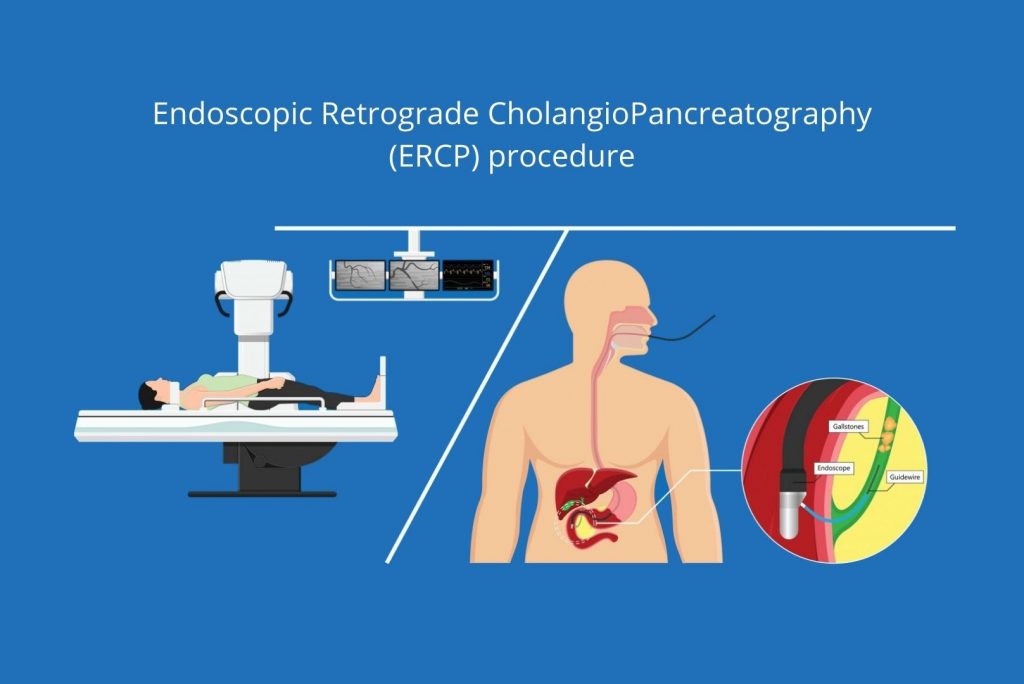
Usually performed in a room with X-ray equipment, the procedure can last anywhere from 30 to 60 minutes, depending on the requirements. The patients would need to lie on their left-hand side during the procedure. The ERCP test requires medications, given through an IV, which include sedatives. Since the patient needs to swallow the endoscope, this process requires a mouth guard to avoid injuries, or any damage to the endoscope.
A finger’s width in size, this flexible tube contains a camera, light and other functionalities. It not only helps the doctor navigate and see within the patient’s body, it allows for a magnified view of the same. The added functionalities allow the endoscope to introduce air or fluids according to the procedure. The scope also can take biopsies, painless samples, of any suspicious growths or tumours.
The scope makes its way through the esophagus, followed by the stomach and finally the intestine. Subsequently a plastic tube is introduced to bile duct through the papilla. This tube injects a contrast dye which allows the doctor to study the complete structure on an X-ray.
Important Points to Remember During an ERCP Procedure
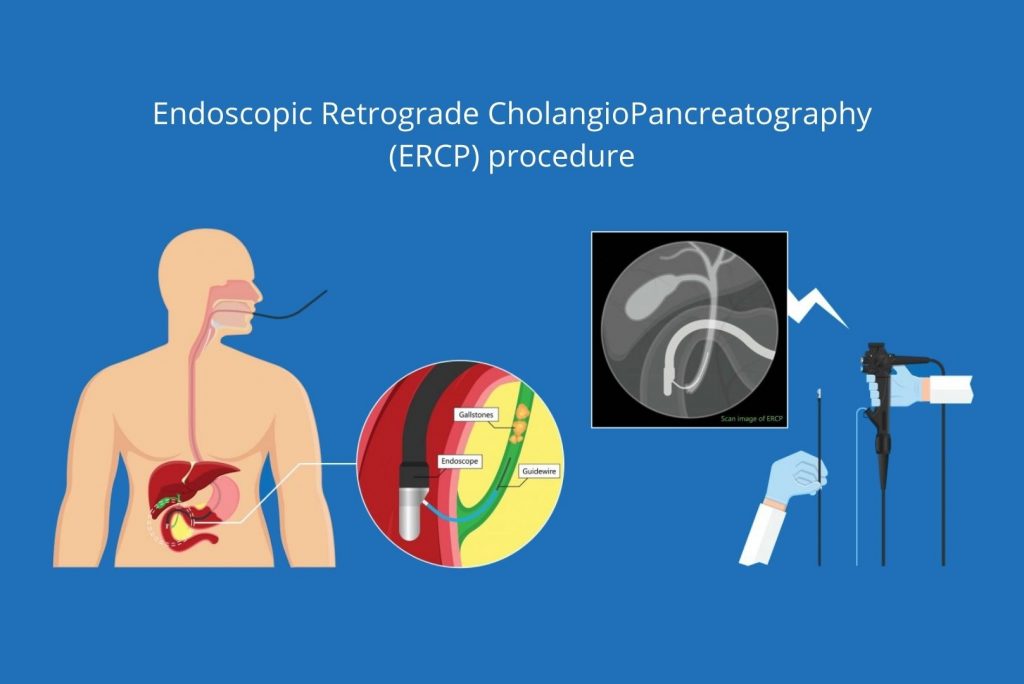
There are two kinds of medicines given through the IV for an ERCP procedure to induce relaxation and provide comfort. These medications allow you to stay conscious, yet at ease and minimizes any discomfort felt. The sedation varies for more intensive cases. A local anaesthetic may also be utilized if the case requires it.
The air introduced when the endoscope travels through your esophagus and stomach may cause some discomfort, but belching may relieve it.
Breathe slow and deep to keep yourself relaxed and at ease.
For removing stones, the opening of the papilla in the bile duct is increased with the use of electrocautery. This allows for the stone(s) to be removed using a basket like structure.
For any block in the bile duct a stent is placed to help the bile to bypass the obstacle.
Any discomfort felt in the throat after the process can be alleviated by lozenges.
What to Keep in Mind Before an ERCP Test
Inform your doctor if you are: Pregnant | Suffering from any lung or cardiac condition | Have allergies to certain medicines
Patients suffering with diabetes may be asked to change their insulin dosage for the day as advised by your doctor. Carry your medication to the procedure in case you need them once the test is done.
Inform your doctor of the complete list of medicines you are currently on. This could be important to inform the doctor about the medication you need to pause until completion of the test. Make sure you take advice of your healthcare provider before pausing any medications.
It is important to have an empty stomach before the test. To ensure this fasting with food or drink for 8 hours before the ERCP test is usually advised.
Considering that the medication usually makes people drowsy, it is important to have someone ferry you home after the test.
What are Some ERCP Complications?
While the ERCP surgery is largely safe, as with any invasive procedure, there can be some side-effects. It is important to inform your doctor if you are feeling any of the below-mentioned symptoms up to a couple of days after the surgery.
- Feeling unbearable pain in the abdomen
- Coughing heavily
- Feeling chilly or feverish
- Presence of pain the chest
- Vomiting and/or nausea
- Bleeding through vomit/stool
In Conclusion
At the Regency Medical Centre our highly celebrated gastroenterology team ensures all our patients get the best possible care. Our in-house expert, Dr. Bishoy Rofaeil, MBBch, Msc, Gastroenterologist, Hepatologist, and Endoscopist, has been published in various international medical research publications, and is considered an expert in his field. He comes with over 7 years of experience in Gastro-Intestinal Endoscopy including Therapeutic and diagnostic ERCP, Therapeutic and diagnostic OGD, and Colonoscopy.
We, at RMC go to great lengths to ensure that we are providing our patrons state-of-the-art healthcare. Together with experts in their field, along with cutting edge technology and equipment, we want to provide patients with the treatment they need.

